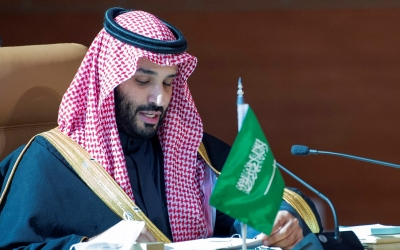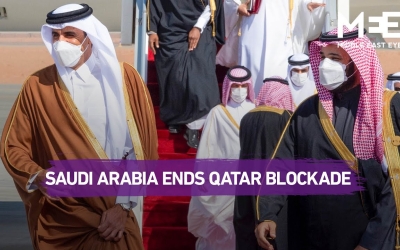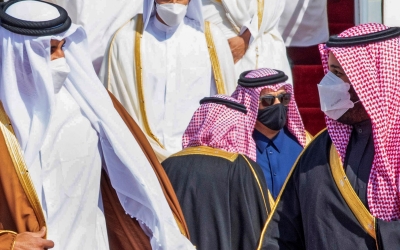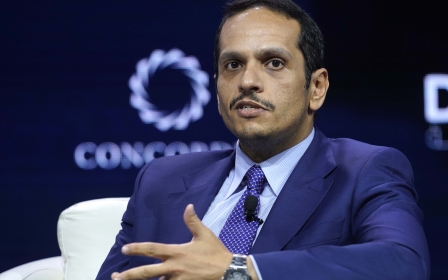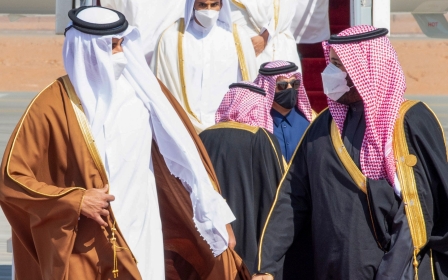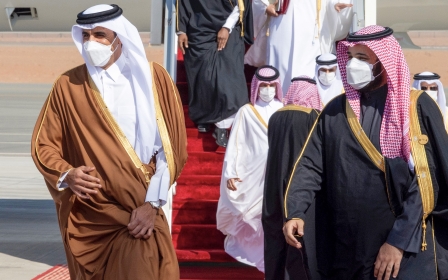Hotel diplomacy: Qatari hotel opens in Cairo as economic ties take centre stage
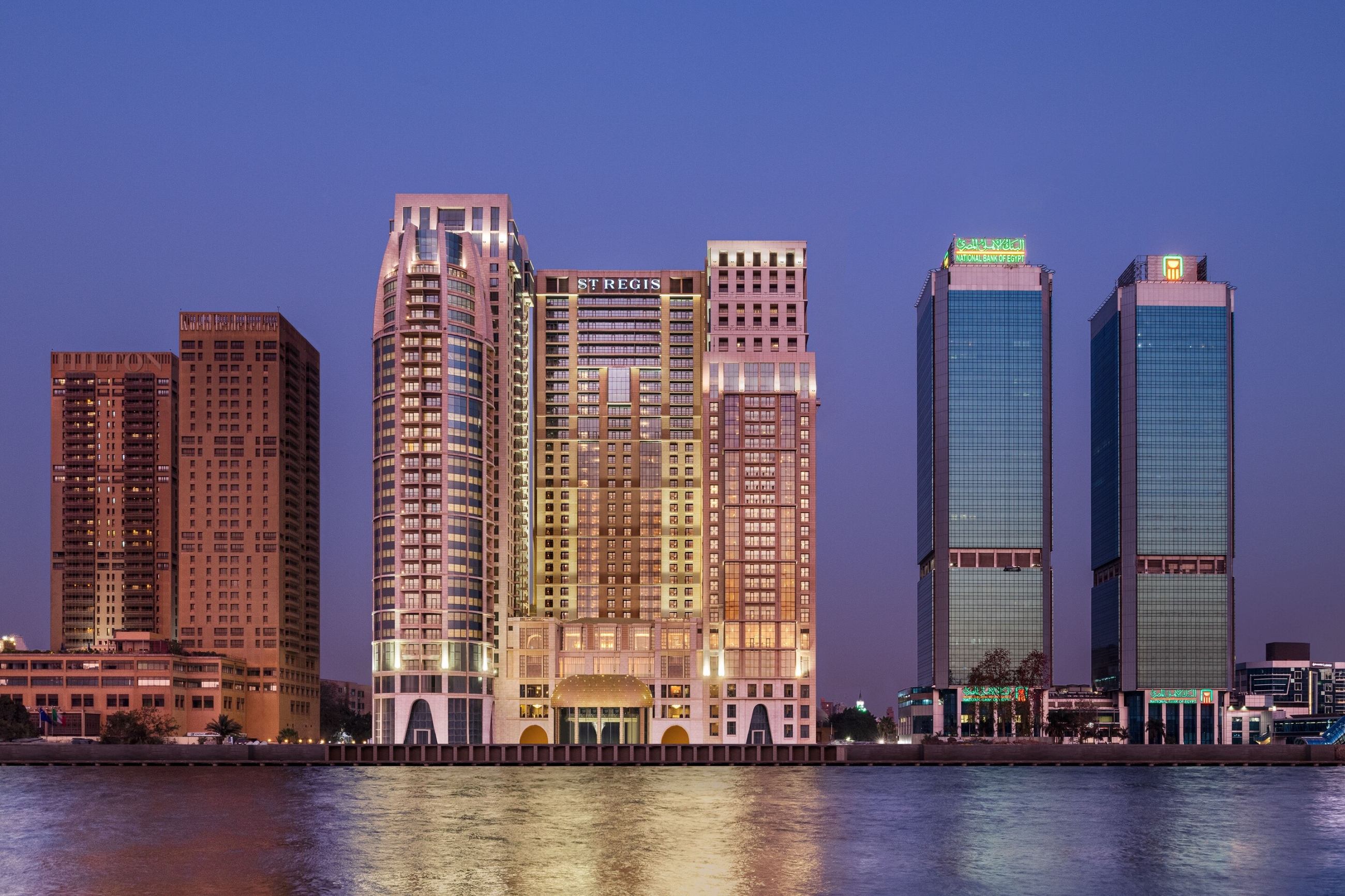
In a high-profile event this week, Qatar’s finance minister flew to Cairo to attend the inauguration of a Qatari-funded luxury hotel, in a move that consolidated the latest rapprochement between Qatar and its former Gulf allies and Egypt.
The opening of the completed St Regis hotel, a billion-dollar investment by Qatari real estate company Diar, had been put on hold during a blockade imposed in 2017 on Qatar by Saudi Arabia, the United Arab Emirates, Bahrain and Egypt over allegations it supported terrorism.
New MEE newsletter: Jerusalem Dispatch
Sign up to get the latest insights and analysis on Israel-Palestine, alongside Turkey Unpacked and other MEE newsletters
Finance Minister Ali Sharif al-Emadi landed in Cairo minutes after the Gulf countries and Egypt signed a US-brokered reconciliation agreement with Qatar, on the sidelines of the 41st Gulf Cooperation Council (GCC) summit in the northwestern Saudi city of al-Ula.
Emadi is the first Qatari minister to visit the Egyptian capital since June 2017.
The project to build the St Regis Hotel started in 2012. The hotel, with its impressive architecture, overlooks the Nile and is located between the Egyptian Foreign Ministry building and the Egyptian Museum in downtown Cairo on the Egyptian capital's iconic Tahrir Square.
Diar had invested $1.3bn in its construction, which is made up of two towers, each standing at 135 metres. The hotel is constructed over 197,000 square metres of land and contains 286 rooms, as well as 80 apartments, swimming pools, restaurants and spas.
Speculations
Qatari investments in Egypt had been able to continue throughout the rift, with Cairo stating early on in the crisis that Doha’s ventures in the country were protected by law. However, the opening of the hotel was a high-profile move that raised speculation about the nature of future relations between the two countries and whether economic interests could eclipse lingering political differences.
Doha and Cairo have been at loggerheads since July 2013, when the Egyptian army moved to oust Qatar-backed Islamist president Mohamed Morsi, Egypt's first democratically elected president.
The coup sparked anger in Doha, which criticised Egypt's crackdown on Morsi's supporters and peaceful demonstrators on numerous occasions.
Egypt, meanwhile, accused Doha of interfering in its affairs and backing the Muslim Brotherhood opposition. It also complained against the editorial line of Qatari news channel Al Jazeera.
'Political gaps between Egypt and Qatar cannot, by any means, be wider than those between Egypt and Israel'
- Dalia Youssef, Egyptian MP
However, as economic interests between the two countries take centre stage, Egypt’s pandemic-hit economy can hope for some relief, economists said.
"Political differences should not be allowed to spoil economic relations," Alia al-Mahdi, the former dean of the College of Economics and Political Science at Cairo University, told Middle East Eye.
Egyptian Finance Minister Mohamed Maait also attended the hotel opening, along with United States Secretary of the Treasury Steven Mnuchin, who was in Cairo at the time.
Emadi said Qatari investment in the hotel demonstrated Doha's support for Egypt’s tourism sector, which plays a big role in the economic development of the North African country.
"The hotel is a good addition to Qatari investments in Egypt," he said.
Maait, meanwhile, said the attraction of foreign investment was a top priority for his government. Such investment, he said, would help create economic opportunities and jobs and contribute to the transfer of technologies.
"This is why Egypt always welcomes foreign investments," Maeet said.
Crucial investments
Qatar invests $5bn in Egypt, according to Emadi, mainly in the real estate, tourism, banking and energy sectors. Diar alone invests $3bn, according to the company's chairman, Khaled bin Khalifa Al Thani.
Qatari investments have endured political differences between the two countries over the past years.
In November 2019, Qatar Petroleum, another Qatari state-owned company, announced the successful startup of the Egyptian Refining Company, a $4.4bn project in which the company is a major stakeholder.
With a burgeoning population and having been severely impacted by the Covid-19 pandemic, Egypt is badly in need of investments, economists said.
"Foreign investments are very crucial for the economy because they increase foreign currency reserves and create jobs," leading economist Rashad Abdo told MEE.
Although Egypt was the only country in the Middle East and North Africa that was expected to witness positive GDP growth in 2020, according to the International Monetary Fund (IMF), the populous country has been hit hard by the pandemic, which has affected most sectors of its economy.
Tourism, which accounts for 11.2 percent of Egypt's GDP and 9.5 percent of total employment in the country, was the most adversely impacted, having been at the centre of Egypt's Covid-19 closures - including a suspension of international flights between March and July.
The St Regis hotel's construction created 5,000 jobs for Egyptian workers, including 1,000 engineers, and supported local industry by relying on the Egyptian market for 70 percent of the material needed for the project, Diar's CEO Abdullah bin Hamad al-Attiyah said.
He added that the operation of the hotel had provided 440 jobs for Egyptian workers, a number that is expected to increase to 1,000.
Challenges
Al Thani said the opening of the hotel would offer an impetus for the completion of other projects by the Qatari developer in Egypt.
Mnuchin, meanwhile, said the construction and the opening of the hotel highlighted the effect that economic cooperation could have on the creation of jobs and mutual interests.
However, the way ahead appears far from certain or smooth.
Egyptian media has mostly not come to terms with the improved relations between Egypt and Qatar.
Media hosts on pro-government channels have said the reconciliation deal has yet to stop "Qatari interference" in Egypt's affairs or prompt Doha to change its media policy towards the country.
Apart from the media discourse, Cairo and Doha also needed to work out a new strategy to avoid collision, including on their different political agendas in the region, analysts said.
"Political gaps between Egypt and Qatar cannot, by any means, be wider than those between Egypt and Israel," Dalia Youssef, Egyptian MP and member of the Committee on Foreign Relations in parliament, told MEE.
"Despite this, Egypt had made peace with Israel. This is why I expect Egypt and Qatar to easily find a way to overcome their differences in the coming period."
Middle East Eye delivers independent and unrivalled coverage and analysis of the Middle East, North Africa and beyond. To learn more about republishing this content and the associated fees, please fill out this form. More about MEE can be found here.


